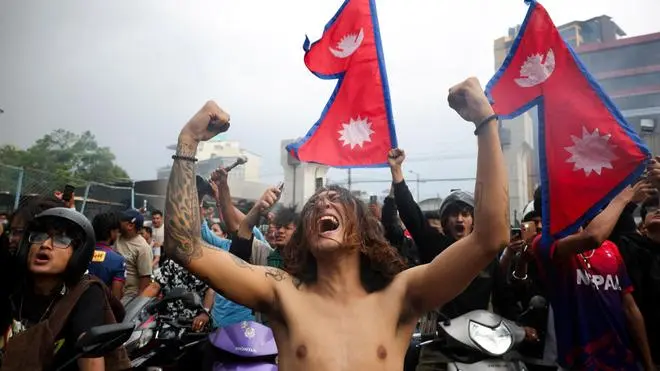For decades, leaders have spoken of sacrifice and service, yet many of their children have inherited nothing but privilege. The sons and daughters of politicians raised in mansions, educated abroad, and enjoying elite lives funded by public resources display wealth and influence online while ordinary citizens struggle. This is more than unfair; it is a betrayal of the people who put those leaders in power.
The gap between promise and practice has grown unbearable.
The recent uprising in Nepal, led by Gen Z, was not born from chaos but from frustration. A social media ban may have been the spark, but the fuel was years of corruption, nepotism, and disillusionment. Young people saw “nepo kids” flaunting luxuries they never earned and realised that the same families controlled the very institutions meant to serve everyone.
Politicians’ children travelling freely, studying abroad, and partying on citizens’ money send a corrosive message: merit does not matter; only connections do. When public opportunities are captured by insiders, an entire nation suffers. Talent is wasted, trust erodes, and democracy weakens.
And when people demand accountability, leaders too often stand in the way. Instead of listening, they protect privilege. Instead of reform, they stall. Offices meant for public service become shields for family wealth. This is the central outrage fuelling today’s movement: leaders forget they hold office only because of the people. Their first duty should be to those citizens, not their own dynasties.
Gen Z refuses to accept silence as virtue. Raised in a connected, information-rich world, they see inequality clearly. Attempts to silence them, like banning social media, only deepened their resolve. Blocking platforms did not erase frustration; it confirmed that the system protects itself, not its people.
This generation’s response is courage. They have taken to the streets, demanding a politics that works for everyone. They know change is risky, but they also know that inaction guarantees more of the same. “It is not time to live safely,” they say. “It is time to fight for our rights, for fairness, for a future where leadership is earned, not inherited.”
But lasting change will not come from anger alone. It requires unity and discipline. The people are the true source of power; governments exist only because citizens consent to them. When citizens stand together across class, ethnicity, and region, they can compel leaders to act with integrity. Peaceful, collective pressure has transformed nations before, and it can do so again.
Leaders must remember: power is not permanent; it is conditional. When they use office to shield privilege or silence dissent, they forfeit moral legitimacy. Rebuilding trust requires transparency, accountability, and reforms that end nepotism. Investigations into corruption, public reporting of assets, and fair access to opportunity are the starting points.
For the youth leading this movement, unity is essential. Violence risks weakening their moral authority and handing excuses to those in power. Instead, their strength lies in peaceful protest, clear demands, and alliances with honest institutions. This moment can be a turning point. If citizens stand united, they can dismantle entrenched privilege and reclaim politics for the public. But if disunity or frustration prevails, the old structures may reassert themselves, stronger than before.
The truth is simple: people give leaders power. And when leaders forget their duty, the people have the right and the responsibility to remind them. Gen Z has shown they will no longer tolerate injustice. Now the rest of society must decide: stand with them or stand by while privilege wins again.
People are the power. And when people unite, no dynasty can stand against them.
